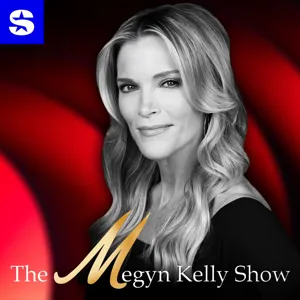Podcast Summary
College Campus Protests after October 7th Attacks Lead to Hearing on Antisemitism: College protests with perceived antisemitic language and actions led to a high-profile hearing, ending careers and jeopardizing jobs, highlighting emotional and financial pressures and importance of clear communication and action from university leaders.
The aftermath of the October 7th attacks in 2000 led to protests on college campuses across the country, some of which contained language and actions perceived as antisemitic. These incidents made many Jewish students feel unsafe and caused outrage among donors and alumni. Republicans in the House of Representatives responded by holding a high-profile hearing on campus antisemitism, inviting the presidents of the University of Pennsylvania, Harvard, and MIT to testify. The hearing ended the careers of one university president and jeopardized the jobs of two others, sparking a heated debate about antisemitism, free speech, and the role of colleges in addressing these issues. The incident highlights the emotional and financial pressures colleges face when dealing with incidents perceived as antisemitic and the importance of clear communication and action from university leaders.
Republican lawmakers link liberal culture on campuses with anti-Israeli rhetoric: Republicans criticized college administrations for their handling of controversial speech, specifically regarding professor Amy Wax at the University of Pennsylvania, and argued that some speech crosses a line into harassment.
During a recent congressional hearing, Republican lawmakers aimed to link liberal culture on college campuses with anti-Israeli rhetoric, viewing them as inextricably bound. The hearing began with college presidents denouncing antisemitism and their commitment to combating it, while emphasizing the importance of free speech. However, Republicans argued that some speech crosses a threshold into harassment and should be addressed. The focus was on the administration's handling of controversial professor Amy Wax at the University of Pennsylvania. The Republicans criticized the administration's response, arguing that it did not align with the law and how things should function on campuses. This hearing represented an ongoing Republican effort to address perceived issues in academia, particularly concerning liberal culture and antisemitism.
Perceived unequal treatment of ideologies on college campuses: Republicans claim uneven application of standards for conservative vs liberal speakers on campuses, particularly in relation to Jewish issues, fueling concerns about free speech and fairness
There is a perceived lack of equal treatment of ideologies on college campuses, according to Republicans. Conservative speakers and events have been disrupted or canceled, while more liberal-minded speakers are allowed to proceed. This discrepancy is particularly noticeable in the context of Jewish issues, as there have been instances of harmful rhetoric towards Jews on elite campuses. For instance, Penn tried to sanction a law professor for her stance on DEI and identity issues, while allowing a Palestinian literary festival featuring a speaker with a history of anti-Jewish slurs and Nazi imagery. This uneven application of standards has fueled Republican claims of ideological bias on campuses, where the student bodies and faculty tend to lean liberal. In 2016, only about 2% of Harvard faculty had a positive view of President Trump, highlighting the imbalance. This issue resonates beyond liberal circles, as it touches on concerns about free speech and fairness.
University leaders questioned over handling of hate speech: University leaders struggled to provide clear answers during a congressional hearing regarding inconsistent application of speech codes and failure to clearly condemn hate speech, raising concerns about ideological monoculture and commitment to protecting all students.
The lack of ideological diversity on college campuses, particularly in relation to political views, has become a contentious issue. Critics argue that this monoculture may contribute to problems such as protests and alleged antisemitism. During a recent congressional hearing, Republicans questioned university leaders about their handling of speech, specifically in regards to calls for genocide against Jews. The universities' inconsistent application of speech codes and inability to clearly condemn such hate speech was highlighted. Despite repeated questioning, the university presidents struggled to provide clear answers, leading to accusations of hypocrisy and a lack of commitment to protecting all students from harassment. The exchange underscored the importance of fostering an inclusive and diverse campus environment where all viewpoints are respected and protected.
Presidents of Harvard, MIT, and UPenn questioned on campus genocide calls: Moral leadership is crucial when responding to hate speech, ambiguous answers can lead to intense pressure and consequences.
During a congressional hearing on anti-Semitism, the presidents of Harvard, MIT, and UPenn were asked if calls for genocide of Jewish people on their campuses would violate their policies. Their legalistic answers were widely criticized as morally evasive, leading to intense calls for their resignations. The most pressure was on Liz McGill, president of UPenn, who apologized and resigned within a few days. The presidents of MIT and Harvard faced similar pressure, but it was later revealed that the calls for their resignations were also driven by political motivations. The incident highlights the importance of clear moral leadership in responding to hate speech and the potential consequences of ambiguous answers.
Political pressure on universities over anti-Semitism and free speech: Political pressure on universities over alleged anti-Semitism and free speech reveals complex issues, including the rise of extreme theories and the motivations of those pushing the agenda
The recent political pressure on universities from House Republicans, led by Elise Stefanik, to address alleged issues of anti-Semitism and free speech, has revealed a more complex situation than initially assumed. Stefanik's actions, driven by her own motivations and the broader problem of anti-Semitic and nativist ideas within the Republican coalition, have shown that the situation goes beyond just these specific issues. The rise of the extreme theory of "Great Replacement" in the Republican mainstream, which falsely accuses global elites and Jews of conspiring to replace white populations with immigrants, has contributed to anti-Semitic violence and is a significant concern. Harvard's handling of the situation with Stefanik, who was once a board member but was pushed out due to her false statements about the 2020 election, highlights the intricacy of the situation and the various agendas at play.
Hearing on antisemitism in academia shifts focus from right to left: The hearing on antisemitism in academia highlighted the ongoing debate over free speech on college campuses, with Republicans focusing on alleged antisemitic ideologies on the left and efforts to regulate what is taught in universities, while both sides defend free speech principles.
The ongoing debate around free speech on college campuses took a significant turn with the recent hearing on antisemitism in academia. The hearing, led by Republicans, aimed to shift the conversation from perceived antisemitic rhetoric on the right to alleged antisemitic ideologies on the left, particularly within elite universities. However, the broader context of this issue lies in the ongoing efforts by Republicans to regulate what is taught in universities, with bans on critical race theory and systemic racism discussions. While both sides have principles defending free speech, skepticism is warranted due to the hypocrisy and desire to replace ideologies. The ousting of university presidents over this issue raises questions about whether this will lead to more free speech or more regulation on campuses. With the trend of increasing regulation of campus speech, it seems that both sides are mirroring each other's approaches.
Free speech debate on college campuses: The debate over college campus free speech leans towards expanding speech restrictions rather than relaxing them.
The debate surrounding free speech on college campuses continues to be a contentious issue, with some advocating for less regulation and embracing the complexity and pain that may result, while others argue for more oversight and a clearer definition of acceptable speech. The trend seems to be moving towards expanding the circle of things that are not allowed to be said, rather than shrinking it. In other news, President Biden delivered a forceful critique of Israel's military tactics in Gaza and called for more military assistance for Ukraine, but faced resistance from congressional Republicans who demanded a clear strategy for victory before approving additional funding.
The Power of Teamwork and Collaboration: Collaboration is crucial for producing high-quality content. A dedicated team of individuals worked together to bring today's episode to life, demonstrating the power of teamwork.
Key takeaway from today's episode is the importance of collaboration in producing high-quality content. The episode was brought to life by a dedicated team of individuals, including producers Claire Tenascatter, Ricky Novetsky, Astha Chaturvedi, and Mooj Zaidi, editors MJ Davis Lim and Paige Cowan, original music composers Marian Lozano, Elisha Yitub, Pat McCusker, and Diane Wong, and engineer Chris Wood. Our theme music was created by Jim Brunberg and Ben Landsverk of Wonderlane. Each person played a crucial role in making the episode a success, demonstrating the power of teamwork and collaboration. So, whether you're producing a podcast or working on any other project, remember that working together can lead to great things.






